#elaine kahn
Text
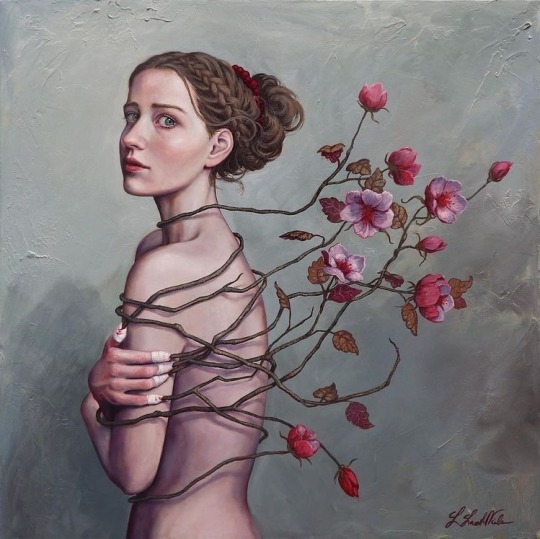
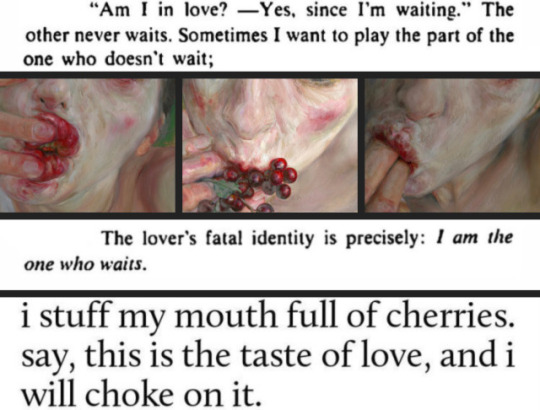
In an alternative universe, i can imagine another version of myself
one in a stable relationship happy in the arms of a lover.
Toned down paranoia, and Indulgent pleasure.
I worry that that version of me is delusional
in love, but alone in it that I’ll somehow miss the signs of an emotionally absent partner the way I missed my father…
And yet, I’ll come up with excuses because I never felt comfortable with pointing my finger
that I’ll overcompensate.. Nest in the apex of their heart and believe that there’s no way higher
that the hierarchy is nothing but guilt inducing anger.
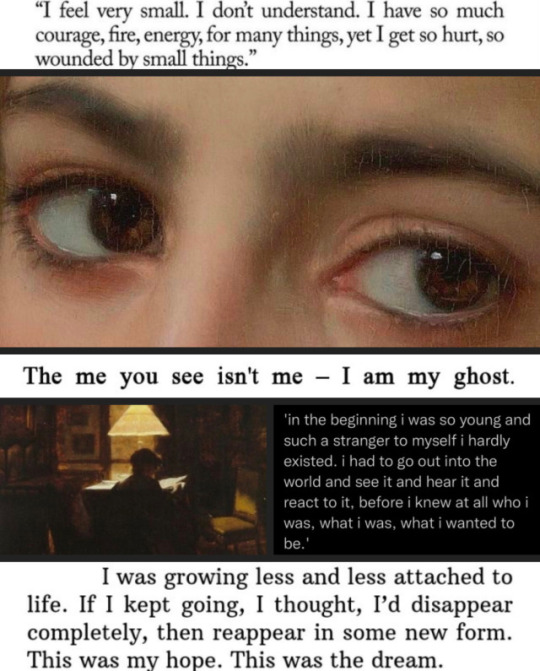
It's easy to love me;
i grew up in a household where it's acceptable to sacrifice your own soul in exchange of feeling like your existence is convenient.
As years went by, I learned to love that feeling eventually more than life itself..
i lost a lot of myself watching my mother hand feed me all that she is, all that she wanted to be, then sneak bites of who she was before she had me..
now, i think i can be whoever a lover needs me to be.
Then when they’re not around I’ll let my pieces fall down and hope that somehow they’ll align…
this terrifies me...
I don't want to settle and passive smoke my own life, set in the corner and inhale the damage even when it isn't mine.
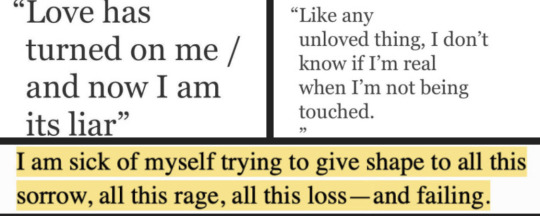



I love love, I just don’t think it’s for me...
In a lecture about addiction, our doctor said
“The neurobiology of love is the same as neurobiology of addiction"
To me, that makes sense for i lose all my edges whenever I'm submerged in a wave of it.
My ends melt trying desperately to reach out even when i don't really know how to direct them to anyone other than myself
Paint them orbits to circle around me and feed them rays of hope
"our paranoia won't last forever"
At least that's what I whisper as i try to keep them close enough, not too much;
I don't want eternity
“I only wanna die someday”
I wrap them around me every night until i suffocate in an embrace trying to comfort all the atoms of love that are lost in me...
I’ll come to an end; and you'll be free.

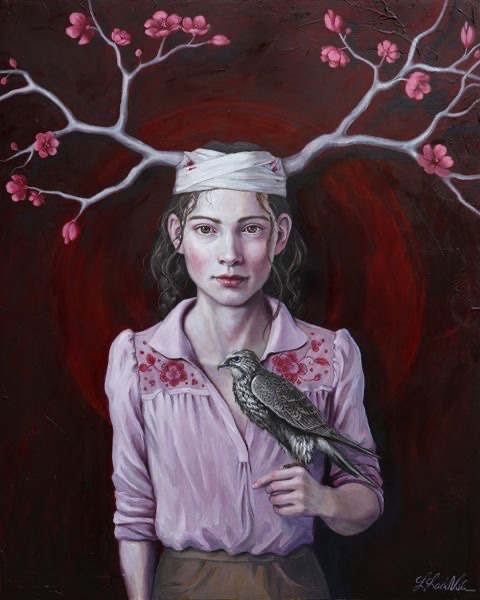

•••
•Quotes: Roland Barthes/ Angelea Lowes/ Anaïs Nin/Mahmoud Darwish/Mary Oliver/ Ottessa Moshfegh/Elaine Kahn/ Natalie Wee/Carole Maso/Tracy K. Smith/Halsey/chelsea g. summers/ Anne Sexton.
•Original context: sinligh
•Art reference:
1. Art by Lisa Lach-Nielsen. 2.Quoted, 2008, oil on linen by Jen Mazza. 3. Choke, 2008, oil on linen by Jen Mazza. 4. Ceruse 87, 2008, oil on linen by Jen Mazza. 5. A girl with pomegranate (detail) by William-Adolphe Bouguereau. 6. An Interior with a woman seated by Lampligt by Christian Valdemar Clause Danish. 7. Photo by Soul Eom. 8. "two people" by Mila Plaickner. 9.Art by Lisa Lach-Nielsen
P.s: writing this felt like:
“It's me, hi, I'm the problem, it's me”
Song rec:
#sinligh poem#quotes#roland barthes#anaïs nin#mahmoud darwish#mary oliver#ottessa moshfegh#elaine kahn#natalie wee#halsey#tracy k. smith#chelsea g. summers#anne sexton#web weaving#word weaving#blotched words#parallels#compilation#art parallels#art compilation#paintings#feminsm#feminist#feminine rage#rage#patriarchy#fuck the patriarchy#daddy issues#mommy issues#female hysteria
568 notes
·
View notes
Text
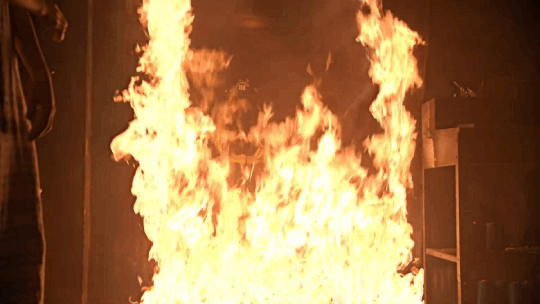
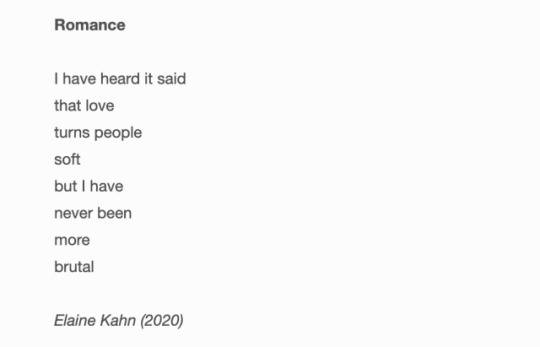

#angela bassett#athena grant#peter krause#bobby nash#bobby x athena#bathena#tv: 911#tv show: 911#911hiatus2023#athena grant nash#athena nash#tv show 911#911onabc#911 abc#911 on abc#911abc#elaine kahn#poetry
58 notes
·
View notes
Text
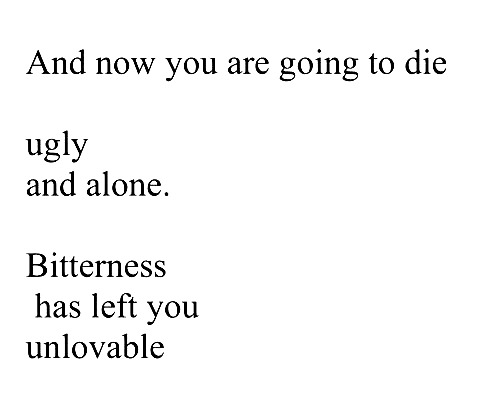
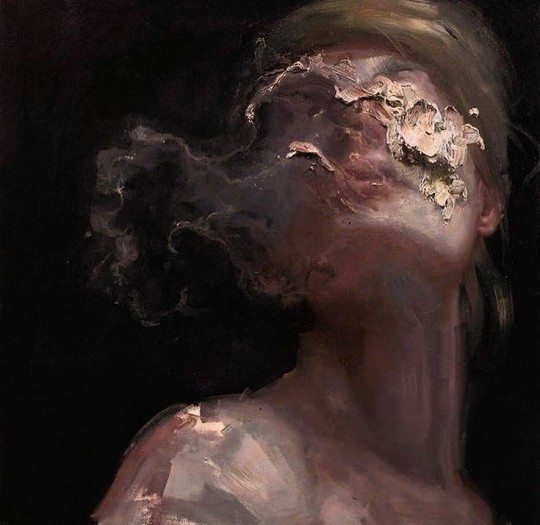
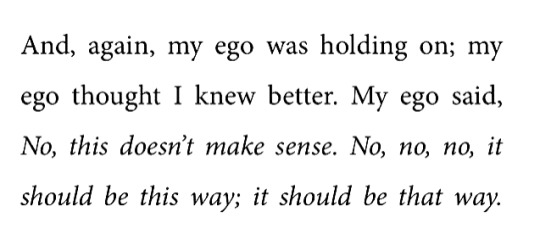
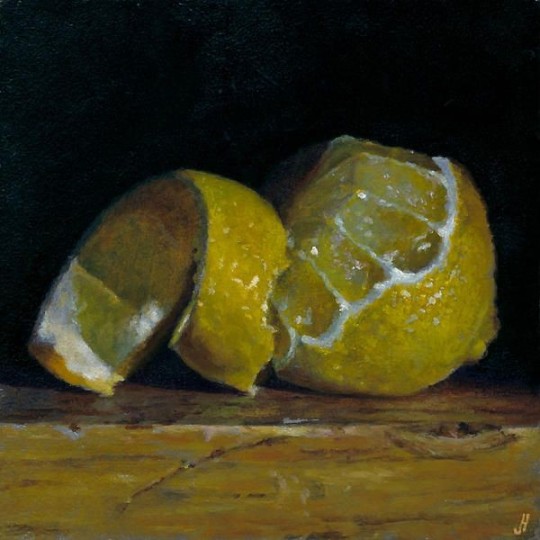

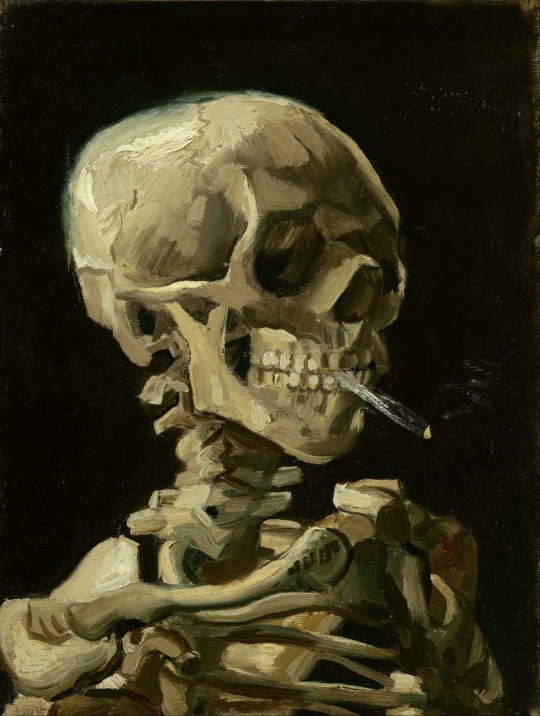
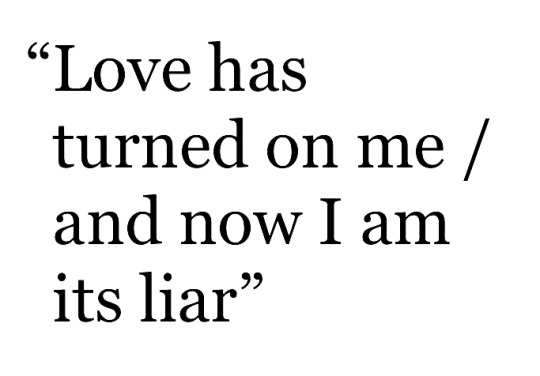
Bitterness has Made me Unlovable
"Self Destructive Tendencies", @heavensghost// Henrik Uldalen// Andrew Garfield// Peeled Lemon, Jeffery Hayes// "From the Book of Time", Mary Oliver// Skull of a Skeleton With Burning Cigarette, Vincent Van Gogh// "ROMANCE", Elaine Kahn//
#web weaving#poetry#painting#prose#spilled ink#spilled words#words#intertextuality#collage#vincent van gogh#henrik uldalen#elaine kahn#andrew garfield#mary oliver#Jeffery Hayes#dont tell my friends#bitterness#human condition
631 notes
·
View notes
Text

ATTACHMENT THEORY, Elaine Kahn
2 notes
·
View notes
Text
i have heard it said that love turns people soft but i have never been more brutal
#Elaine Kahn#Romance or The End#words#sad bitch hours#poetry#quote#quotes#book quotes#book#books#booklr#bookblr#literature#dark academia#litblr#book blog#book tumblr#bibliophile
5 notes
·
View notes
Text

#bibliophile#elaine kahn#garth greenwell#ocean vuong#literature#a good book#book inspiration#book inspo#book cover#booksbooksbooks
2 notes
·
View notes
Text
"Love has turned on me
and now I am its liar."
Elaine Kahn, ROMANCE, "Romance or the End: Poems"
#elaine kahn#romance#poetry#writing#poem#words#text#quote#spilled poetry#spilled thoughts#spilled words#spilled writing#spilled ink#dark academia poem#dark academia quote#dark academia poetry#dark academia writing#dark academia#romance or the end: poems
3 notes
·
View notes
Text
Poetry Lessons from John Ashbery's "Street Musicians"
John Ashbery has been deified by critics, but my sense is that he's divisive among young writers and poets. He's kind of a hallmark of obscure, academic white guy poetry that once ruled the literary world but is out of vogue (in many cases for a number of good reasons)—but on the other hand, he's incredibly prolific, has a tremendous vocabulary and has a silly, cerebral voice that is entirely his own.
I read his collection Self-Portrait in a Convex Mirror, which critics seem to consider his magnum opus as far as I can tell, and wasn't totally moved by it; there was interesting language and strange moments, but I found it too navel-gazey, too inward-facing and without enough footholds for readers. Unnecessarily difficult, in other words.
Even so, I picked up Houseboat Days, another collection of his, because I wanted to give him a fair shake anyway in the interest of closely reading good poets in order to improve my own writing.
With that out of the way, "Street Musicians," the first poem in the collection, actually impressed me. There are a few main things I want to take away and remember from it, which are as follows:
1. Titles, Context and "Directions" in a Poem
A common struggle for me when writing my own poems is choosing a title that speaks to what follows.
As I see it, there are different strategies you can take:
Self-consciously poetic title that speaks literally to the content (popular in older poetry, for e.g., Robert Herrick's "To the Virgins, to Make Much of Time" or Robert Frost's "The Road Not Taken")
Self-consciously poetic title that speaks figuratively to the content in varying degrees (on the more direct end of the spectrum, "Mean Free Path" by Ben Lerner comes to mind, alluding to a particle's path in physics vs. a reader's path through his elliptical writing style vs. a person's path in love and relationships and memory through their own life)
Plainspoken phrase with poetic affect, figuratively related to the poem either directly or indirectly (Elaine Kahn runs the gamut here, particularly in her collection Romance or The End—a more direct figurative example could be "You Dream of Candy Because You Want Yourself To," which does mention dreaming of candy in the poem but only as a detail, whereas a less direct one might be "Reality Steve," a reference to a blog of reality TV spoilers on a poem that doesn't seem very related to that at all; it might be a reference to The Bachelor or might not, since the poem does mention a person on TV with nice hair, or it could be a reference to a real lover in the poem the author addresses, though it might not—the title has a feel of an inside joke, though magically still works somehow)
Title that is the "first line" of the poem (Emily Dickinson has come to be known for this in retrospect, since her poems were seemingly untitled—"I felt a Funeral, in my Brain" for example)
And so on.
One thing you usually don't do is pick a non-poetic title that is strictly nominative and literal, which Ashbery does here (ie, it's about two street musicians... and it's called "Street Musicians"). Even so, it ends up working because the title still has an interesting relationship to the rest of the poem.
The main thing it depends on is the first line that follows it:
"One died, and the soul was wrenched out/ Of the other in life..."
The jump from the plain and nominative "Street Musicians" to "One died.../ Of the other..." does a lot of work with very little. Upon first reading the title, it could mean any number of street musicians; now immediately, it means only two.
Only two evokes a lot: a deep friendship, a rivalry, almost a romantic relationship. The fact that one of them has "died" in the first line also makes the poem feel very fast paced; in a way, "Street Musicians" is doing a ton of expository work and is setting up a timeline for the whole piece almost invisibly: as we see by the end of the first stanza, 90% of the story is already over when the poem starts, and the rest takes place in the twilight of that fact.
Suddenly, a boring title is actually pretty interesting—and the jump to "One died" is both tragic and kind of darkly funny (he's almost using the "jump" from title to first line as a narrative "line break," which is probably an underused technique).
Finally, as my one-time poetry teacher Elaine Kahn always stressed, you want a title that strikes the right balance between explaining and directing and providing another opening into the poem; in my own thinking, it's like thinking of the title as either a door (the only way in) or a window (one possible way) into the poem.
Direct and literal titles tend to run the risk of over-explaining or over-directing, but Ashbery elides that trap for a couple reasons: first, the title is so plainspoken and direct that it almost becomes too vague again, leaving room for interpretation; second, the poem itself actually doesn't offer many concrete clues (!) that the poem is a literal story about two street musicians other than the title (yes, there's details that lead that way, but without the title, it would be way too easy to interpret in countless other directions).
Suddenly the title is generous: it's just enough to get you started reading and interpreting, but not much more. Good start!
2. Abstract vs. Concrete, Open vs. Closed Language and "The Rules"
Some common writing rules are "show, don't tell," "use concrete language," "be specific," "avoid excess abstraction" and so on. They apply to almost all writing, but they have some special application in poetry.
Apart from its history as CIA propaganda, "show, don't tell" is a misunderstood rule and it breaks down when it comes to poetry (more accurate might be "balance showing and telling"), and the other three rules I mentioned basically follow this one rule.
The problem is in other forms of writing, "concrete language" means specific and descriptive language when painting scenes or pictures, but typically it leans towards a realist aesthetic (ie, use language that helps readers reproduce reality in their minds). In poetry, what is or isn't "concrete language" has a different sense—it means more juicy words and fewer filler words, more words that point to richer or multivariate meanings, more arrangements of words and lines that evoke than those that don't, and so on.
In essence, poetry already has a broad license to be abstract; it is encouraged in a way that it isn't in many other forms of writing. Even so, it's a question of where the abstraction comes from in poetry. Generally speaking, if it comes from the language you've chosen itself rather, it's a counter-productive kind of abstraction.
Again, thinking on Elaine Kahn's advice I've heard in the past (and her admission of being a fan of Ashbery, which surprised me), she says the key is to be "very concrete about abstract things," and that you can "get away" with abstraction if you can make it real somehow.
Ashbery is still too abstract in general for my taste, but I have to admit that he's kind of a master of this. Consider his description of the life and times of the surviving street musician:
Wrapped in an identity like a coat, sees on and on
The same corners, volumetrics, shadows
Under trees.
First of all, "wrapped in an identity like a coat" is almost disarming in how basic it is. The idea animating the metaphor is basic and well-understood: identity is illusory or "false" in some way, a rationalization. But "a coat"?
But then we get the description that follows: the seeing "on and on" evoking a dread of mortality, "corners" taking on the literal meaning of street corners and the figurative meanings of being "cornered"—and then the pivotal "volumetrics," which in my estimation, basically breaks "the rules."
What exactly is a "volumetric"? The definition is "relating to the measurement of volume," which is about as un-concrete and abstract as a noun can get (it's doubly breaking a rule because "volumetric" as an adjective might be evocative, but pluralizing it into a noun makes it seem like it would be bland again). So, why is it not bland here?
The concrete words Ashbery uses here around it are so concrete that they are almost mundane: the corners, the coat, the shadows, the tree. On the one level, we get the day-in, day-out existence of the unfulfilled street musician. Then, tying all of these things together, we get volumetrics.
Where it is, the word gives a whole new dimension (pun intended) to all the other daily observations of this would-be musician—and it gives a vivid inner voice to the musician at the same time. Suddenly, "corners" is evoking math formulas and trigonometry, "shadows" is evoking physics, vectors, light, heat.
Finally, the way the line breaks leaving "under trees" alone is interesting as well. Having "corners, volumetrics, shadows" together is important for these connotations to fly, but really what the musician is remembering or thinking of are the "shadows under trees," which is actually quite a specific image: he is thinking of the specific public places in parks and street corners where he can find shade on a hot day, and how the romance of that has drained with repetition. What was once a welcome respite, a secret performance space for those in-the-know has now been reduced merely to mathematics and logistics.
From Ashbery here, maybe we have a new rule: you can make your concrete language abstract, but it depends on context; you can do it if doing so will open more avenues and interpretations than it will close, which it does here.
From this and other examples, we can see that there are rules, and then there are rules. There are rules beneath the rules, and we ought not to take them (or the world, if we are to describe it evocatively) at face value.
3. Be Proportional with Vocabulary; Evoking Over Stating
Finally, Ashbery is thought of as an extremely verbose and dense poet (and sometimes he is), but "Street Musicians" shows a lot of restraint. There are a handful of moments that make you want to reach for the dictionary:
volumetrics
chattels
declamation
And none of these are really too much of a reach for any average reader. The moments that make you really sit up in your seat actually use quite plain language, combined or deployed in an arresting way. The moments that pop out for me are:
suburban airs/ and ways
beached/ glimpses
So I cradle this average violin
In November, with the spaces among the days/ more literal, the meat more visible on the bone"
The first two use line breaks to create puns and multiple meanings. The "average violin" is so crushing in what it evokes given what precedes it, but the language is entirely plain.
The last example is maybe the most instructive for me, because it is perhaps the most abstract in its concept and in its language while still working somehow. The first part of the line for me evokes a calendar, the sense of time passing (though why does November make the spaces clearer? shorter days? longer and more visible divisions of time?).
The second part evokes a kind of hunger, but almost inversely—a sense of literal "meat more visible on the bone" makes me think of when there won't be meat on the bones, of aging and eventually dying, of the hunger we have in our youth that wanes as we get older. Neither of these "images" are particularly concrete as we usually think of it, nor are they particularly related—but he orchestrates them so that they are here.
Finally, the only thing that turned me off in the poem:
"The plush leaves the chattels in barrels/
Of an obscure family being evicted
Into the way it was, and is.
For me, this is Ashbery Ashbery-ing as people usually accuse him, and I start to lose the thread. "An obscure family" doesn't do a lot for me," "into the way it was, and is" I understand but uses too many non-word words to make its point, the missing comma in the first line drives me insane, the double-s in "chattels in barrels" is frustrating for some reason and feels overly arcane.
But hey, nobody's perfect.
#john ashbery#poetry lesson#elaine kahn#street musicians#houseboat days#creative writing#poetry analysis
3 notes
·
View notes
Text
I want to be more
than anything I want
if I listen carefully to certain music
I can just remember what it’s like
to live
inside the perfect closeness
of another’s breath
it seems extraterrestrial
in hindsight
Dolores said
I’ll miss you when you’re gone
and I think of this
while scraping 3-day-old smashed cockroach
from the sun-bleached wooden floor of my apartment
it’s like the refrain
or the stain of the refrain
I don’t pay it too much mind
there is real joy
in understanding
no one else is going to do it for you
— excerpt from "Somewhere There’s a Nothing I’m a Part of," Elaine Kahn
0 notes
Text
something transformed in me the day i read "love has turned on me // and now i am its liar." like HELLO ???? what kind of mastermind do you have to be to craft a line like that. need to read the rest of the poems in that book Immediately
#it spoke to me#spoke to me very deeply#never getting over it ever#i love you elaine kahn#girlblogging#this is what makes us girls#just girly things#this is a girlblog#just girly thoughts#just girly posts#mutuals#girlhood#i'm just a girl#hyper feminine#girly things#pinterest girl#gaslight gatekeep girlboss#poetry#romance or the end: poems
1 note
·
View note
Text

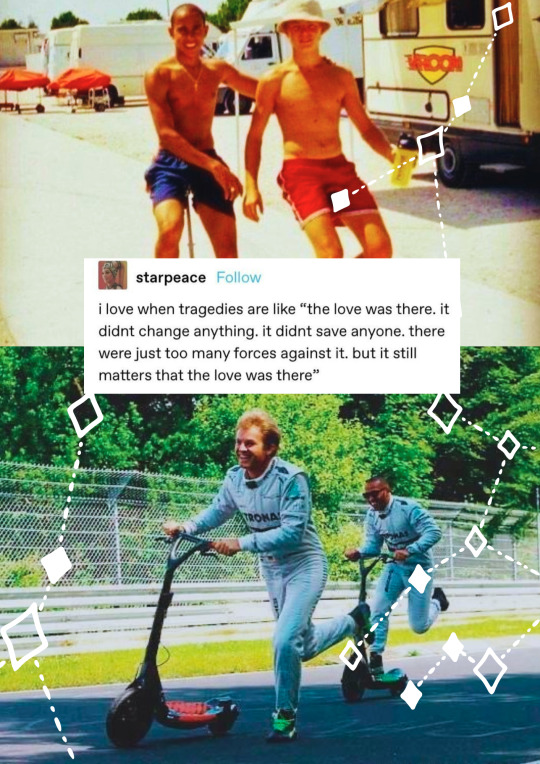
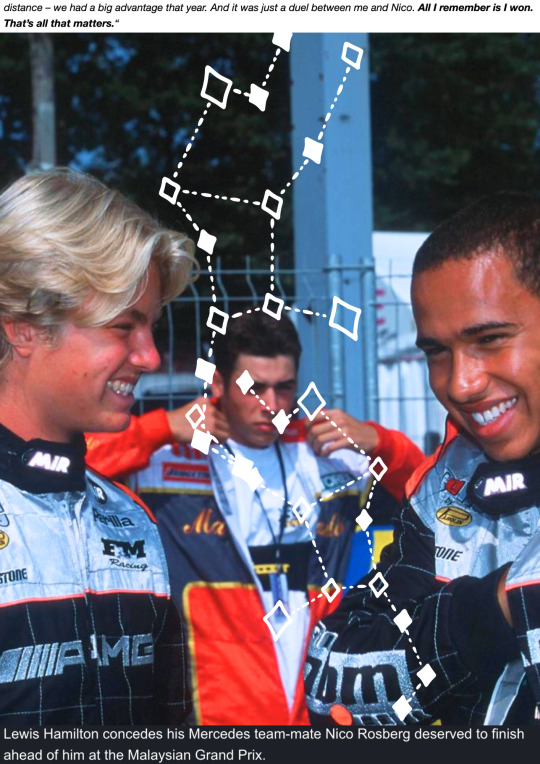


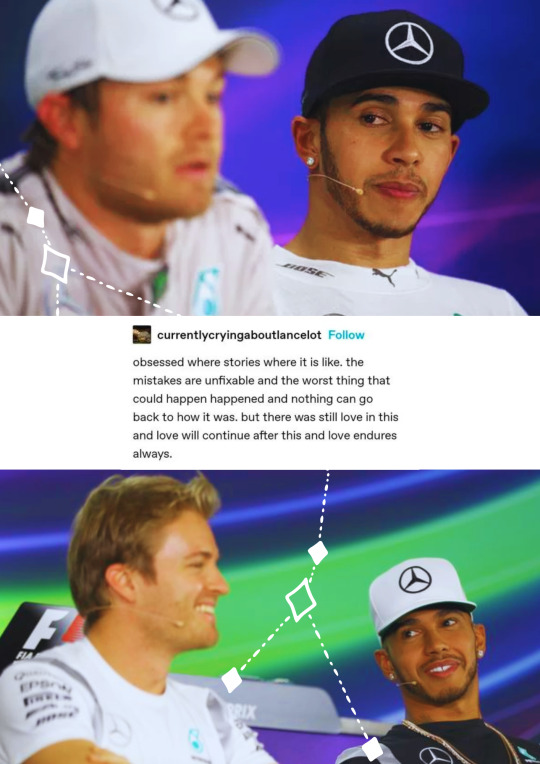








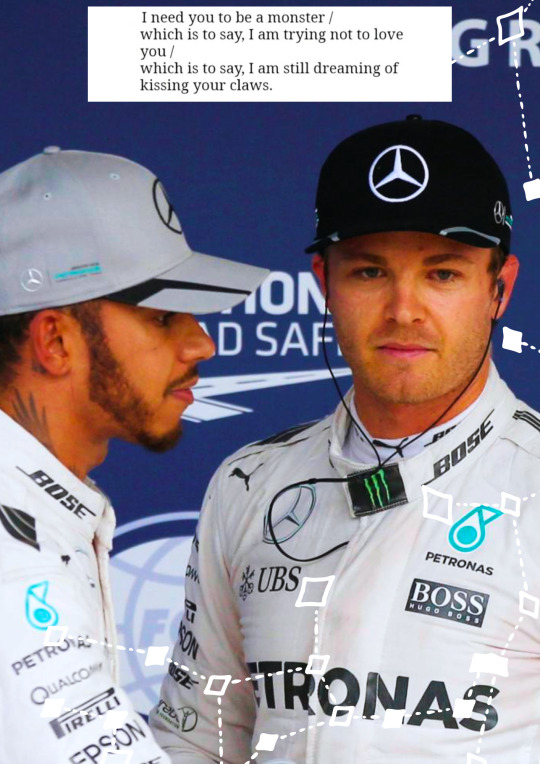




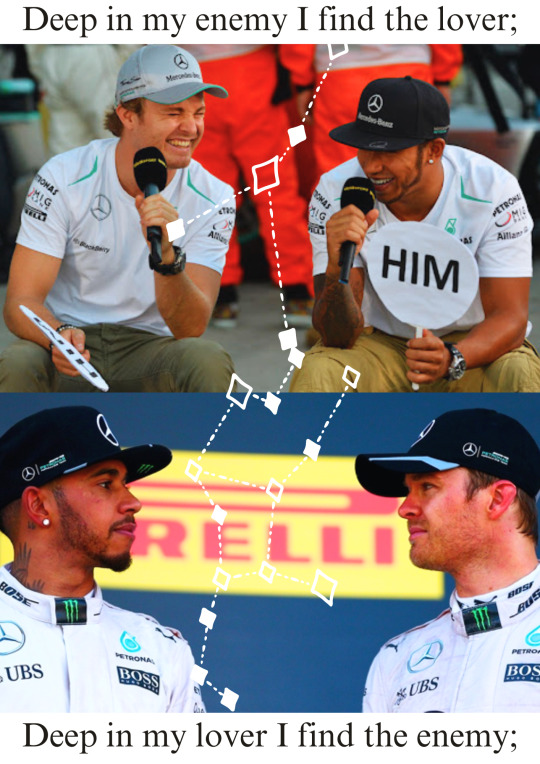


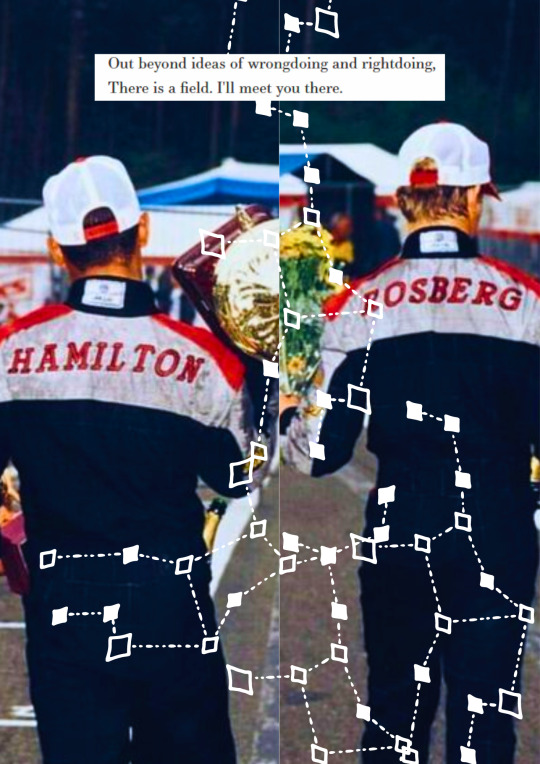
for x, @xiaoluclair, the funniest person i've met thru f1blr
Lewis Hamilton & Nico Rosberg - not friends, not enemies, but a sacred third thing
Jeanette Winterson, Lighthousekeeping / starpeace / Lewis, Essentially Sports / Planet F1 / unknown / currentlycryingaboutlancelot / Lewis' note in Nico's guestbook, The Sports Rush / June Gehringer, I get so jealous of euthanized dogs. / Richard Siken, Twitter / Nico, Independent / p.d. / Lewis, The Guardian / Lewis, Eurosport / Kahlil Gibran, The Forerunner: His Parables and Poems / Lewis' former karting boss Dino Chiesa, The Sun / Lewis, Essentially Sports / Fortesa Latifi / unknown / Toto Wolff, Motorsport / Elaine Kahn, Romance / David Cronenberg, Consumed / Pierre Corneille, The Cid (tr. by A.S. Kline) / mine / Lewis and Nico, Sky Sports / Nico, The Sports Rush / Ocean Vuong, On Earth We’re Briefly Gorgeous / Rumi
F1 Web Weaves
665 notes
·
View notes
Note
Can I request a webweave about love, rage and overall strong emotions?





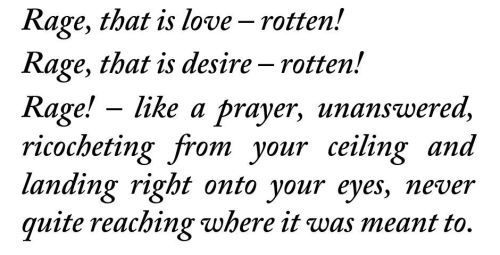
romance, elaine kahn // schuyler peck // judas, k. wright // angels in america, tony kushner // poem of the end, marina tsvetaeva // a prayer, tathève simonyan
#web weaving#web weave#parallels#lyric parallels#fragments#poetry#on rage#on anger#on love#on longing#poem#quotes#literature#lit
1K notes
·
View notes
Text



romance or the end, elaine kahn (x)
#moiraine damodred#siuan sanche#moiraine x siuan#the wheel of time#wotedit#tvedit#wlwedit#usergif#femalecharacters#photopeablr#cinemapix#usercats#userhella#singinprincess#*#flashing tw#waygate lighting my belothed#wish i knew how to make happy things
645 notes
·
View notes
Text

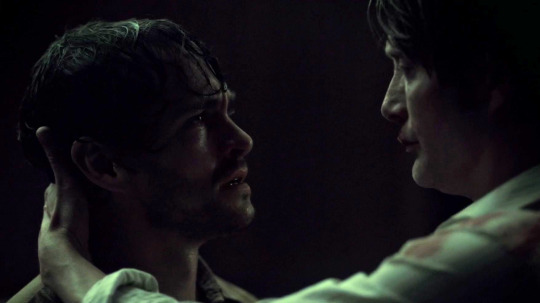

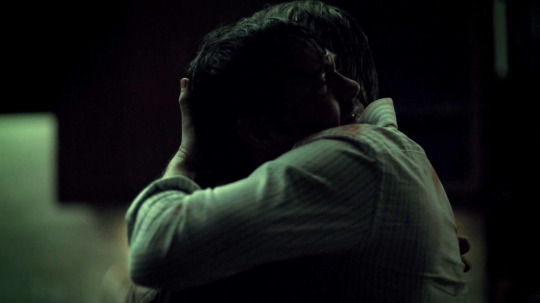

"Romance or the End" by Elaine Kahn x Hannibal Lecter
#hannibal lecter#will graham#hannibal#hannibal nbc#nbc hannibal#hannibal edit#hannibaledit#hannigram#murder husbands#hannibal comparatives#hannibal comparisons#the poetic clown
610 notes
·
View notes
Text
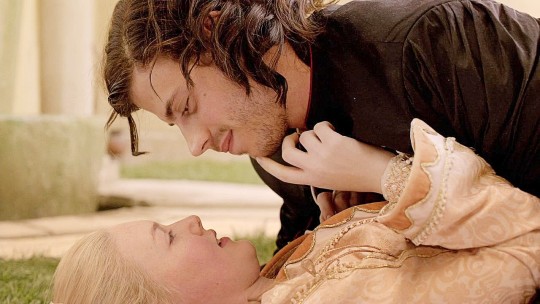





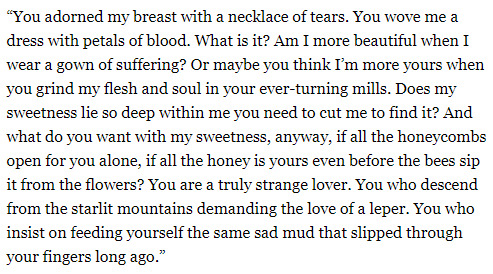
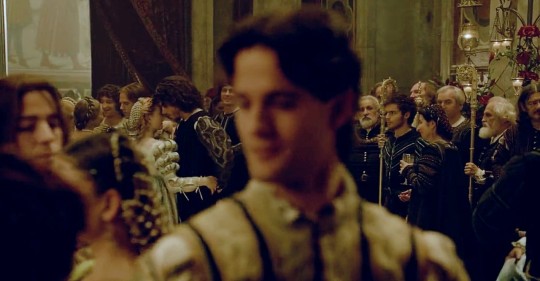







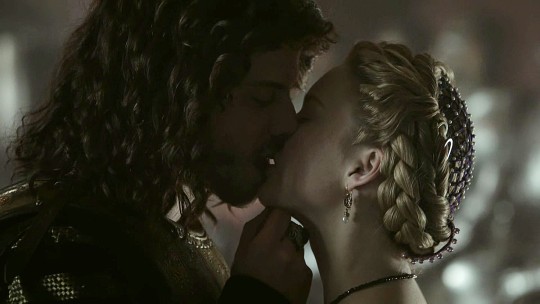



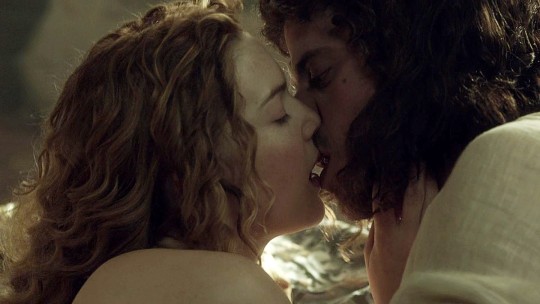




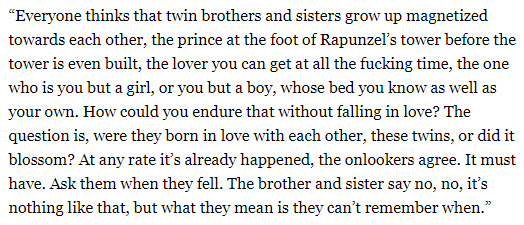
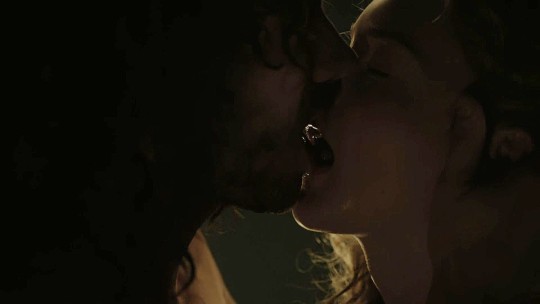




requested by @crystalclrs
the borgias (2011-2013) cr. neil jordan / no exit and three other plays, 'the flies', jean-paul sartre / bone, yrsa daley-ward / carmilla, joseph sheridan le fanu / a literate passion: letters of anaïs nin & henry iller 1932-1953, henry miller / absolute solitude: selected poems, 'lxxxiii', dulce maría loynaz / granted, 'in tennesse i found a firefly', mary szybist / romance or the end, elaine kahn / henry and june: from 'a journal of love', the unexpurgated diary (1931-1932), henry miller / pine to sound, nancy kuhl / hiroshima mon amour, marguerite duras / autobiography of red, anne carson / plainwater: essays and poetry, 'canicula di anna', anne carson / the selected plays of hélène cixous, 'the perjured city', hélène cixous / half light: collected poems 1965-2016, 'elegy', frank bidart / the sorrow festival, erin slaughter / melancholia, 'seventeen', dc de oliveira / white is for witching, helen oyeyemi / postcolonial love poem, natalie diaz / wuthering heights, emily brontë / the caged owl: new and selected poems, 'going out', gregory orr
#the borgias#theborgiasedit#cesare borgia#lucrezia borgia#cesare x lucrezia#francois arnaud#holliday grainger#mine#mww#tbww#comparative#comparatives#web weaves#web weaving#web weavings#web weave
159 notes
·
View notes
